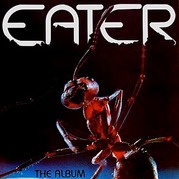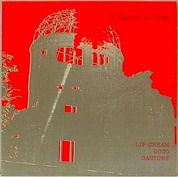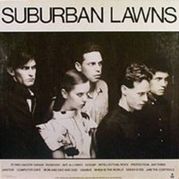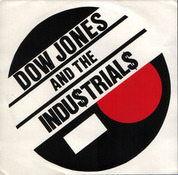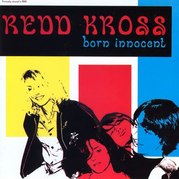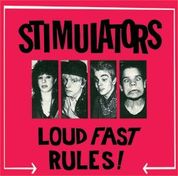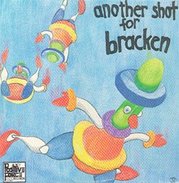March 2010
Eater: A Teenaged Punk
Classic Compilations: A Farewell To Arms
Suburban Lawns in Spring
Twofer: Anti Flag x Miss TK and the Revenge
Anti-Flag
For Blood and Empire
(A-F Records, 2006)
Anti-Flag has been doing approximately the same thing for more than a decade. At the onset of that time, it toured consistently to build a fan base that appreciated the fast nineties styled punk pulling from an earlier time. The band’s been relatively consistent over time, and it’s a testament to their beliefs that the group still has something to say after the innumerable releases. Overt political messages don’t generally make for good pop music based upon the fact that some segment of the listening audience will be offended at some point. That’s why our Pittsburgh friends aren’t MTV stalwarts. For Blood and Empire actually seems to increase the political message as well as the inclusion of different styles of punk it trucks in. Pretty much each track bounces off of some branch of punk which easily makes this the band’s most radio friendly release to date - except of course for the lyrics, which are relentless critiques of the government, the press and American society in general. So, this record will not take AF to the general ear holes of Americans, but the band is now releasing records through RCA. Even with this, it maintains the group’s vision of what a band should be, which is admirable. Maybe the distribution will help. Maybe millions more will hear what they have to say. Or maybe they’ll just become lazy millionaires and start releasing dance punk records.
Dow Jones & the Industrials Git Synthetic
Having previously commented on Dow Jones and the Industrials, some might find it obtuse to revisit the subject. Examining just the tracks that the band contributed to the Hoosier Hysteria! disc seems reductive, even if it represents the majority of what the band recorded.
Dow Jones & the Industrials - "What's the Difference?"
Redd Kross - "I'm Alright" (Video)
Redd Kross: A Teenage Punk
A minute with Mike Hudson and Frank Mauceri, 4/4
How’d you get into all these bands in the first place?
FM: I collected records and I liked this odd stuff. I’ve collected punk rock records since I was twelve or thirteen years old. It was ’78 or ’79 when I started collecting. As soon as the first wave punk records came out I got them. I don’t know why I gravitated towards those. I think I read a Jane Scott article in the Plain Dealer about it and was just curious, so I picked up the records here and there when I could.
Given the journalistic landscape in Cleveland, even if that’s how Frank found out about the scene, why’d you decide to start your paper, the Niagara Falls Reporter, elsewhere?
A minute with Mike Hudson and Frank Mauceri, 3/4
FM: Mike’s right. The press wasn’t positive. After the initial wave in ’76 or ’77, things tailed off. Underground music - punk rock - was pushed to the side and forgotten about. It wasn’t until the second wave that people really got interested in the whole thing.
Stuff like radio was really hard to deal with. College radio was just coming on strong at that point in time. Trying to get air play larger stations wasn’t actually possible. In Cleveland, that was kind of disappointing, because WMMS, the most popular and most hated station, was pretty cutting edge in the early ‘70s. They were playing a lot of crazy stuff – they were way out there. At a certain point, they really turned coarse and started playing arena rock, album rock, corporate rock. It was really disappointing to a lot of people in town at the time.
A minute with Mike Hudson and Frank Mauceri, 2/4
Frank Mauceri: Persistence has a lot to do with it, because there was no defined sound in Cleveland. You couldn’t really say that all the bands sound alike. It’s not like Seattle during the grunge years. There was that sound that people just expected. Cleveland didn’t have that, so there has to be something driving it.
I agree about those bands not sounding the same. Do you think that there were commonalities, though? Maybe Pere Ubu’s the exception.
FM: I don’t think Ubu is an exception, because even if there’s not a common sound, there’s a common attitude. There’s a common interest. The attitude is a cynical, smart ass outlook that’s unique to Cleveland. To build a music scene on a common attitude is a lot different than other scenes, which generally just built on a common sound. It also gets mixed up with a sort of beatnik, literary thing.
A minute with Mike Hudson and Frank Mauceri, 1/4
Rendering punk in business terms doesn’t sound quite right. For the last thirty years, though, a significant portion of the public has found itself enamored, in one way or another, with some segment of punk culture. It might only be studded belts and pretend mohawks for most, but there’s a vibrant scene struggling to persist through music industry’s lean times.
Harley Flanagan and the Progression of Hardcore
YOUR ALL A BUNCH OF IDIOTS HAHAHAH
Classic Compilations: Another Shot For Bracken
You just have to dig for it.
None of this directly leads to an examination of Another Shot for Bracken (1986), but the compilation, which was released through 7 Seconds’ record label, grants listeners a wide ranging taste of what was going on in the underground. Of course, not every genre is represented over the 17 tracks here, but there’s more than just hardcore.
Alien Kulture x Politics
Just further proof that there's no end to the parade of unknown rock acts from the past. They're political and they like aliens. But it seems that the band was formed specificlly to combat the wash of racist sentiment that the National Front was spreadin across the UK. So while it's entertainment of the highest degree, there was a point to it all.
